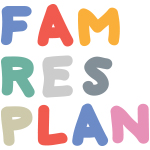Edukacijsko-rehabilitacijski
fakultet Sveučilišta u Zagrebu
[ Specifična obilježja
obitelji u riziku: doprinos planiranju
kompleksnih intervencija ]
Izlaganje na 26. godišnjoj konferenciji Društva za prevencijska istraživanja (SPR) „Optimizing the Relevance of Prevention Science to Systems“ u SAD-u, 29.5-1.6.2018.
Utorak, 05. lipnja, 2018.
Članice našeg projektnog tima izv. prof. dr. sc. Martina Ferić, doc. dr. sc. Ivana Maurović i voditeljica projekta prof. dr. sc. Antonija Žižak prezentirale su rezultate FamResPlan-a na 26. godišnjoj konferenciji Društva za prevencijska istraživanja (SPR) naziva „Optimizing the Relevance of Prevention Science to Systems“, 29. svibanj do 1. lipnja 2018., Washington, DC, SAD.
Naslov postera je “The metric characteristics of the Family Resilience Assessment Scale in Croatian context“, a poster možete pronaći klikom na poveznicu.
Program konferencije dostupan je ovdje.
Sažetak postera:
Introduction: Concept of family resilience gains more and more interest of researches in the last decade. However, there are still challenges in the family resilience operationalization as the focus shifts from the resilience of individual members to the resilience of the family system. From year 2015. project Specific characteristics of families at risk: contribution to complex interventions planning (FamResPlan) is carried out at Faculty of Education and Rehabilitation Sciences University of Zagreb (funded by Croatian Science Foundation, project IP-2014-09-9515). In the project, family resilience is defined as process of effectively negotiating, adapting to, or managing significant sources of stress or trauma (risk). Assets and resources within the individual, their life and environment (protective factors) facilitate this capacity for adaptation and ‘bouncing back’ (good outcome) in the face of adversity (adapted from Windle, 2011).
Methods. Family Resilience Scale (FRAS, Sixbey, 2005) were used in pilot study in order to find out appropriate measures for family resilience. Six scales measure Family communication and problem solving, Ability to make meaning of adversity, Neighbors support, Family spirituality, Family connectedness and Security and support in the community. Parents of first grade students from secondary schools Ivan Svear in Ivanic Grad and The First high school in Zagreb were included in research (N = 220, 53.9% of mothers and 46.1% fathers). Factor analysis was conducted.
Results. Factor analysis of shortened version of the instrument (54 items) point to six-factor solution that explains 48.89% of the variance: Family communication and problem solving, Making sense of adversity, Neighbors support, Family spirituality, Family connection and Security and support in the community. Obtained factor solution was similar to the original model (Sixbey, 2005). Reliability of four scales is satisfactory (α from .65 to .92), while two scales have lower reliability (Making sense of adversity, α =.58, Neighbors support, α =.60). Descriptive data indicate a negative asymmetry of results distribution on all factors, and high results values that may indicate low sensitivity of the instrument.
Conclusion. Obtained results of FRAS validation implicated that instrument should be adapted for assessing the family resilience in Croatian context. Similar results can be seen in FRAS validation research in Turky (Kaya & Arici 2012), Romania (Bostan, 2014) and Malta (Dimenich, 2014).

